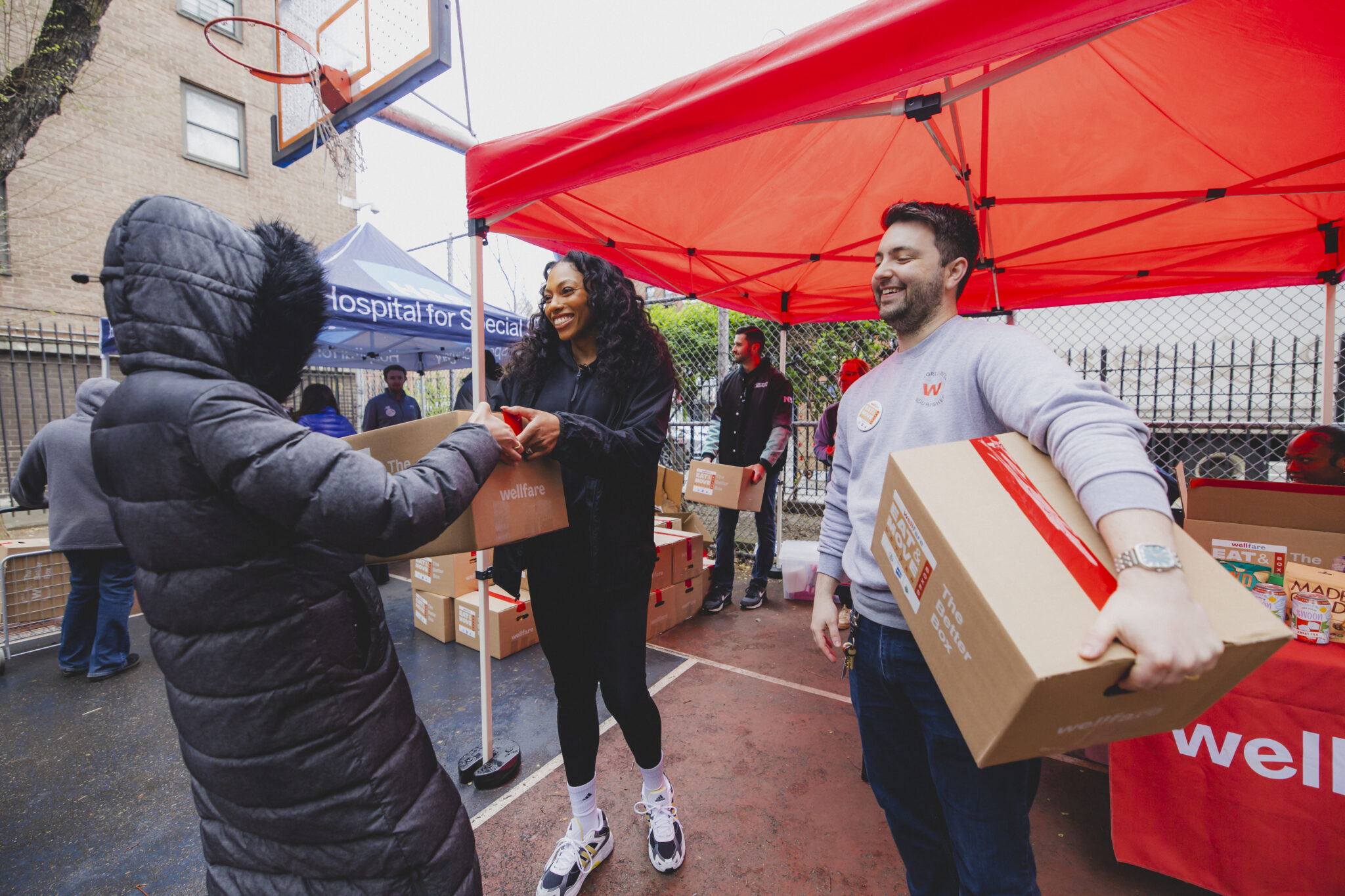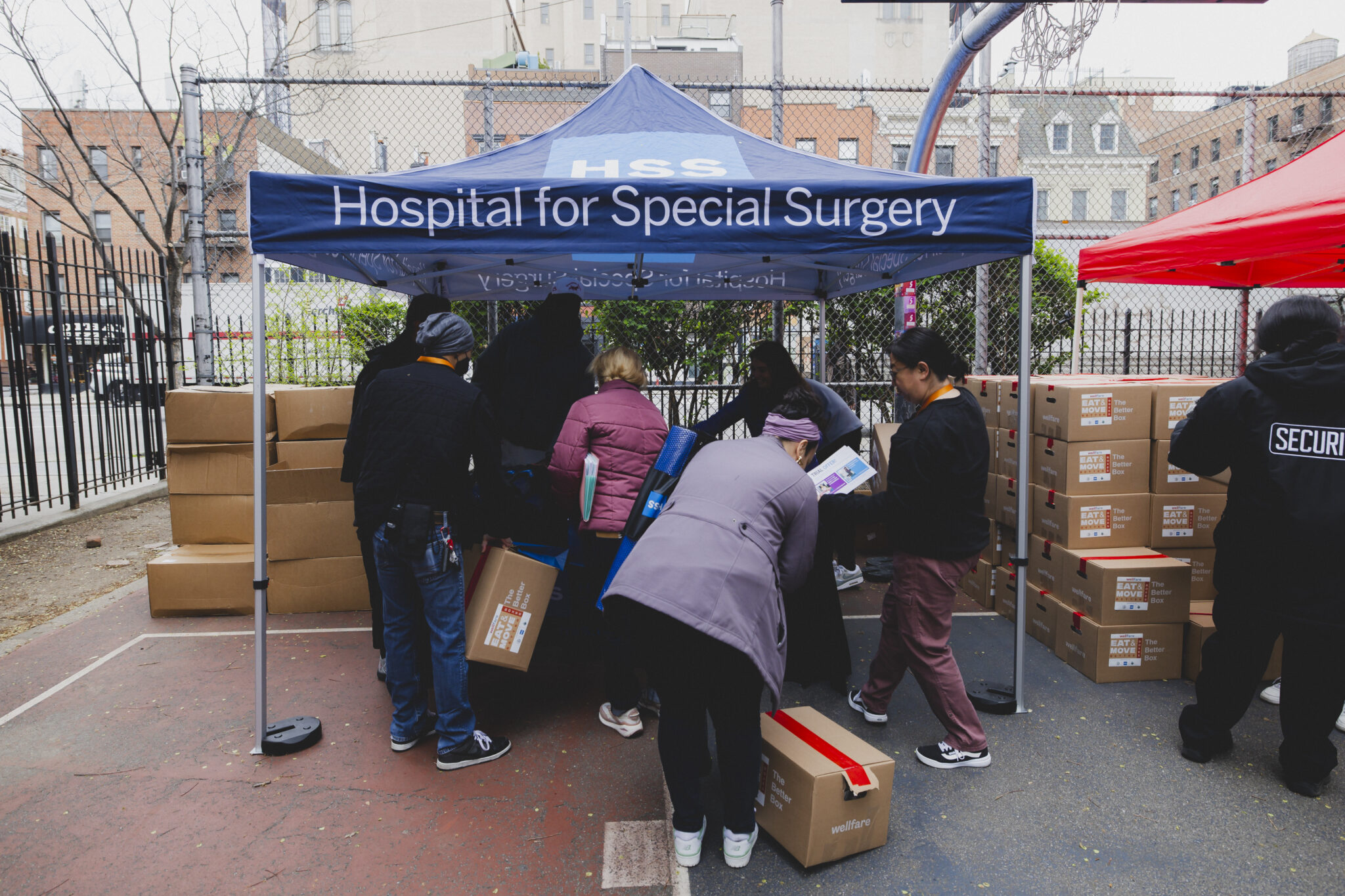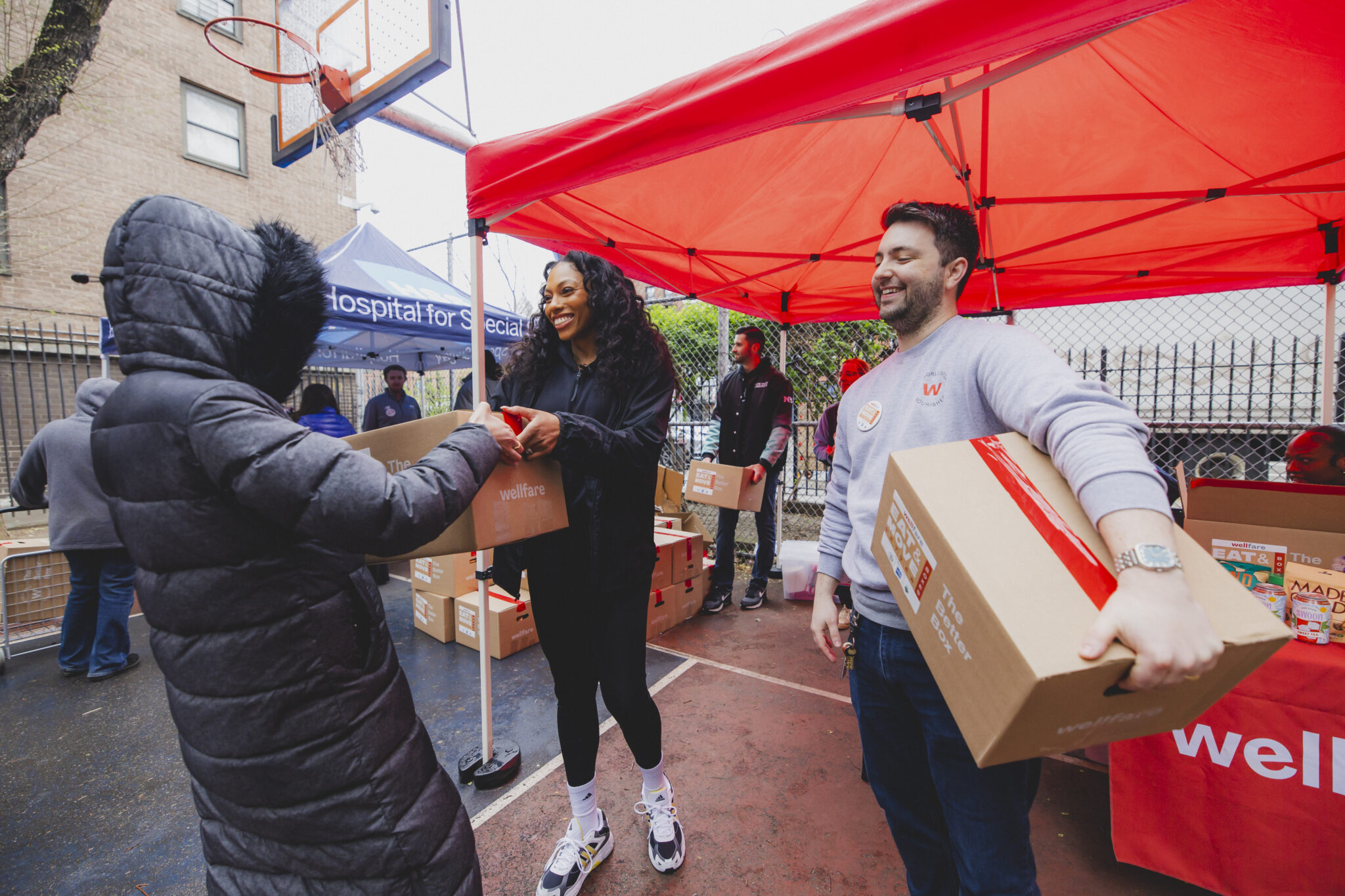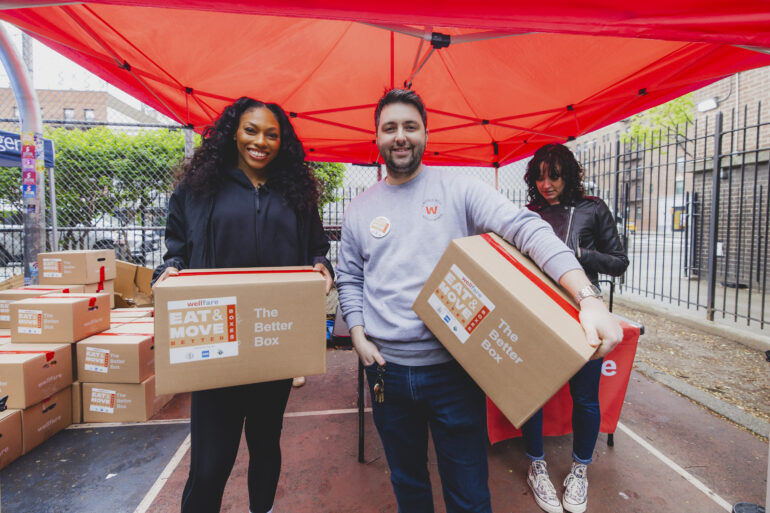
On April 13, the New York Liberty, Wellfare and the Hospital for Special Surgery held a food giveaway at the Fulton Houses in the Chelsea section of Manhattan. It was a rainy day, but that did not stop the fun and enthusiasm from residents and staff members there. Betnijah-Laney Hamilton joined and took time to talk with members of the community as she handed out boxes. Also attending was the CEO of Wellfare, Cole Riley. He took some time from his work to chat with The Local W.
The Local W: We beat the rain and it’s a great turnout. How does it feel?
Cole Riley: It feels great! It’s another great day in the community distributing tens of thousands of dollars worth of great groceries. And this is our first opportunity to do something in Chelsea, and it’s been fantastic to bring the New York Liberty and Hospital for Special Surgery back out here.
TLW: The last time we talked, you mentioned covering all the bases in New York City. Since this is your first time here, what was the process of making the connection to the Houses here and really getting the community turnout in the ways that you got it?
CR: We’ve been operating for the past few years across the city. We kind of know exactly who we need to talk to, including the tenant association president, the City Council member, the Community Board and some other local leaders so that we can activate. Whether it’s for a one-day event like this, or to become more of a monthly distribution going forward. So we have our template, we have our strategy, and that’s what we did setting up here in Chelsea.
TLW: And with that communication piece, how do you make sure that you’re making that one connection, and then you can sort of almost snowball it and connect to another part of New York? How does that process come about?
CR: It starts with the Tenant Association president and these public housing developments that we focus on. These are great opportunities for us to make a deep, deep impact in a small geographic area. And we know there’s usually a single leader that we can reach out to to coordinate for a distribution event, to get the word out, to learn more about the community that we want to serve. And that’s where we started here in Chelsea and that’s where we start in every single neighborhood is with the TA president.

TLW: Something that I noticed and really liked was that a lot of folks spoke different languages and I saw interpreters and translators really guiding them through. How valuable is it to have a staff that can cover all the bases and connect to any population in any area you’re in?
CR: Totally. It’s a testament to the movement that we’ve been building. Volunteers and partners from across New York City, from across different backgrounds, speak different languages that want to help support us. And so when we activate in a neighborhood like here in Chelsea where we need Spanish speakers, and we need Mandarin speakers, we have those folks already here volunteering that can help can make that connection. And that’s the case in all the neighborhoods that we’re in.
TLW: In New York, we’re still dealing with budget [cuts]. When the external circumstances are so adversarial, how do you guys try to power through to make sure that those budget cuts and those cuts in services don’t slow down the work you’re doing?
CR: For us, it’s being independent and having these direct relationships with these incredible companies, these incredible food brands, building our own Volunteer Corps, working directly with the communities that we want to serve. When all these external factors are loud, disruptive, and divisive and aren’t necessarily working as seamlessly as they should be, we’re over here blazing our own path, being able to deliver impact when we want to on our terms. So that’s been the case for the past four years, and it’s going to be the case forever. We love being on our own and we love delivering impact on our own as much as possible.
TLW: With that independence, it gives you guys more leeway to shoot more targets and cover more bases as compared to the regular non-profit structure.
CR: Totally. These existing nonprofits that are out there and these government agencies, they’re complicated and convoluted. There’s a reason why these problems still exist. It’s just a network of networks of networks of partners helping each other say that they’re doing good. And there really isn’t someone in the middle that’s making it actually happen end to end, and that’s what we do. We call it “direct to need” where we own as many parts of the pie as possible. And then we can bring in incredible partners to support the work that we’re doing. So that’s that’s our ethos, it’s that direct to need.

TLW: I was talking to Betnijah and she mentioned that when she was a kid, the things that were in the stores, the honeybuns, Arizona Iced Teas, were so prevalent as compared to healthy snacks, and we talked about nutrition as well. With our HSS friends here addressing the health, activity, and nutrition piece. How do you think they fit together?
CR: What we focus on are products that have less sugar, less salt, less fat and more functionality. These are products that are doing great in incredible groceries like Whole Foods and Sprouts. But you come into neighborhoods where there’s much more need than anywhere else, and these products aren’t on the shelves. And even if they are, they’re too expensive.
So what we’re offering is an opportunity to access convenient nutrition. Snacks and drinks that folks can put in their backpacks, give to their kids and do make a difference over time. They curb the sugar intake, they curb the salt intake. And so that’s been our program since the beginning and it ties hand in hand with the overall health and well-being of your body. It’s first making sure that you’re putting in good fuel.
TLW: With the Liberty, this is the third partnership with the team. And having them here, and especially having a player like Betnijah that everyone knows and is helping out. How does that uplift the work you’re doing?
CR: It’s incredible for us to be able to bring Betnijah out here to help, first of all, just bring awareness to the program certainly, but also to actually lend a hand. We need more hands passing out these boxes. You can see today we distributed close to $100,000 worth of groceries and we needed everyone helping, and Betnijah was right there on the front lines for the past hour, helping us distribute these boxes. It’s an incredible partnership with the Liberty awareness wise, these volunteer projects, we and look forward to continuing it.”
TLW: Speaking of projects, what’s up next on the marquee?
CR: For Wellfare it’s being consistent and expanding our reach into more neighborhoods like Chelsea, reaching more families, [and] partnering with more brands to bring more product. So more more more, but consistently, and that’s what 2024 looks like.

